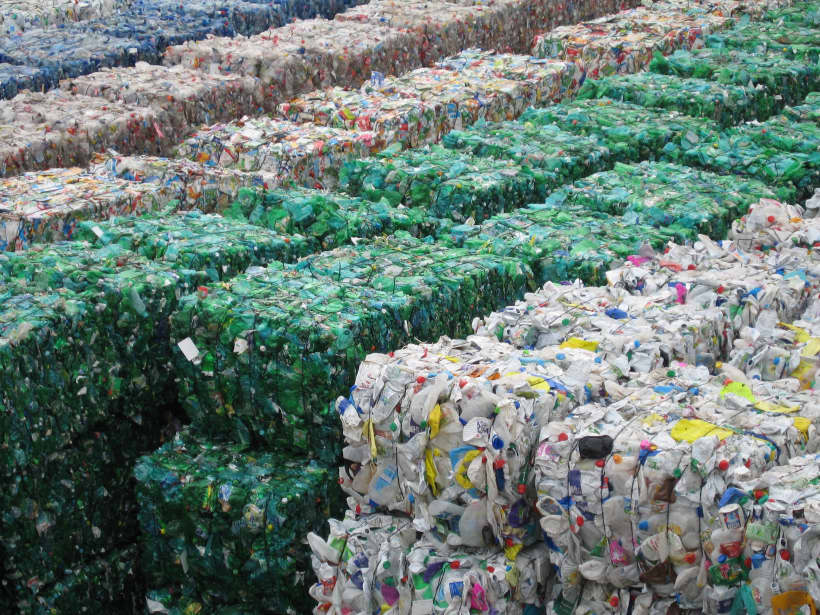Digital services for all
‘My Citizen Profile’ will be the one-stop shop e-desk that citizens can contact for all their dossiers and requests with Flemish public service agencies. The Government of Flanders is also committed to e-inclusion so that no one is excluded. Investments in digital information collection provide better insights and policies. In this way, Flemish Resilience creates a digital transformation.

One-stop shop e-desk
Applying for services, getting a status update for your current dossiers with public service agencies, or requesting diplomas and certificates can all be done via the virtual government desk My Citizen Profile.
‘My Citizen Profile is the place where you, as a citizen, can arrange all your affairs with public service agencies,’ says Goedele Van der Spiegel, Head of the Digital Flanders Division and responsible for the My Citizen Profile project. ‘We feel that citizens have difficulty finding their way to a specific service and that they no longer see the wood for the trees due to the myriad of public service desks. My Citizen Profile solves that problem.’
‘In the first half of 2022, we were able to activate a lot of new registrations. Citizens who apply for an overall renovation grant can now follow the status of their application in My Citizen Profile. As of this year, minors between the ages of 12 and 18 can also access My Citizen Profile, where they can find a clear overview of their youth support history, among other things. Dozens of local authorities provide some of their services, e.g. downloading a tax certificate for childcare, via My Citizen Profile as of this year too.’
More than 200 cities and municipalities already offer My Citizen Profile on their websites. The My Citizen Profile app will also be launched shortly, offering citizens easy anytime, anywhere access to the e-government desk. ‘Thanks to the extra budget for Flemish Resilience, we will be able to speed up the app’s launch,’ says Goedele Van de Spiegel.
More information on ‘My Citizen Profile’ (in Dutch)
‘My Citizen Profile’ represents an important step in the journey towards a more digital government. Check out the dashboard (in Dutch), via which the Flemish public administration is monitoring the recovery and the key indicators that the recovery plan aims to have a direct/indirect impact on, with a focus on digitalisation: digital government (in Dutch).
Digital for All

If the services of public agencies and companies are increasingly digitalised, it is important that all citizens can easily function within this digital world.
‘Thanks to Flemish Resilience, we can release EUR 50 million for local authorities to develop a policy on e-inclusion,’ says Olivia Demonie, e-Inclusion Equal Opportunities Policy Officer at the Agency for Home Affairs. ‘Many cities and municipalities are already paying attention to the digital inclusion of their residents, but often limit themselves to temporary actions. Thanks to the Flemish Resilience funds, they can now really start working on a long-term digital inclusion policy.’
One of the pathways within Digital for All is the 27 projects that will be set up by 108 municipalities to develop an e-inclusion policy.
‘The municipalities of Denderleeuw, Erpe-Mere, Haaltert, and Lede, for instance, will be working on the user-friendliness of their digital environment,’ says Olivia Demonie. ‘In addition, they are setting up a mobile service, bringing digital help to residents, and are starting a desk for volunteers who can offer support.’
Discover all 27 projects of the local authorities
By financing the ‘Digital for All’ projects, Flemish Resilience wants to improve citizens’ digital skills. Check out the dashboard (in Dutch), via which the Flemish public administration is monitoring the recovery and the key indicators that the recovery plan aims to have a direct/indirect impact on, with a focus on e-inclusion: citizens’ digital skills (in Dutch).
Other Digital for All projects
City Deal ‘E-inclusion by design’ (in Dutch)(opens in new window): Central cities in Flanders are developing practices to put end users first.
Digital inclusion policy tool (in Dutch)(opens in new window): policy tool for local authorities to design a vision and a policy on digital inclusion.
Brochure for digital helpers (in Dutch)(opens in new window): brochure containing practical tips for digital helpers to identify, support, and refer people who are at risk of digital exclusion.
Better information on waste treatment

The new MATIS information system allows the Public Waste Agency of Flanders (OVAM) to monitor the processing of waste, from collection to final recycling, more efficiently.
‘In the past, we only knew how much sorted waste companies and households offered for processing and how much waste went to the treatment plants. We didn’t really have any idea of what happened to it afterwards,’ says Koen Smeets, Head of the OVAM Research & Monitoring Unit. ‘Thanks to MATIS, we will know how much waste arrives at the treatment plants throughout the treatment chain, but also how much of it is actually recycled or reused, and how much ends up as non-recyclable waste to be dumped or incinerated.’
This information allows the Flemish administration to gain a better insight in the waste flows and to adjust its policy accordingly. This will bring us one step closer to a fully circular economy where nothing goes to waste.
Koen Smeets continues, ‘In addition, MATIS will allow us to detect problems more easily at a waste treatment plant and to quickly inform the enforcers. This way, we can prevent the authorities from having to pay the cost for cleaning up illegally dumped waste. Thanks to the data in MATIS, we will also be able to combat fraudulent and illegal practices more efficiently and be informed more quickly about market problems in the circular economy.’
Household waste collectors and waste treatment companies have been able to enter their data in MATIS since the beginning of this year. As of 2023, this will be mandatory for all companies that collect or process waste.
More information on MATIS (in Dutch)(opens in new window)
By financing MATIS, Flemish Resilience wants to help build a more digital government, improve the treatment of primary industrial waste, and reduce greenhouse gas emissions. Check out the dashboard (in Dutch), via which the Flemish public administration is monitoring the recovery and the key indicators that the recovery plan aims to have a direct/indirect impact on, with a focus on digitalisation: Digital government (in Dutch), Processing of primary industrial waste (in Dutch), and Greenhouse gas emissions (in Dutch).